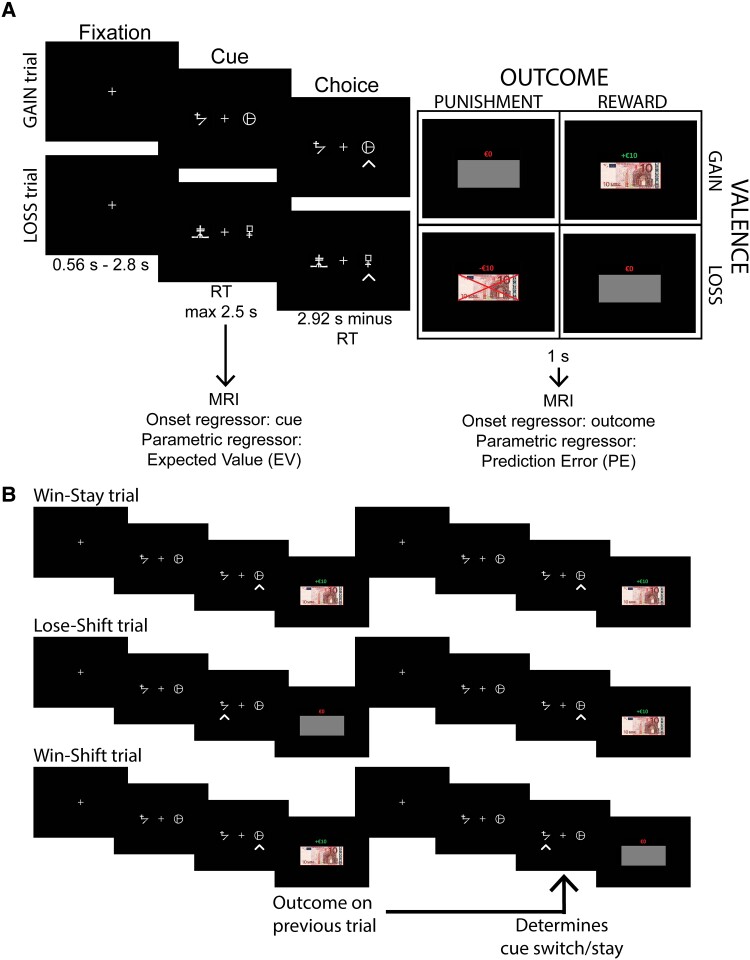Figure 1.
Task description and a Win-Stay-Lose-Shift trial explanation. (A) Participants performed a probabilistic instrumental learning task adapted from Pessiglione et al.18 (B) Example of successful Win-Stay-Lose-Shift (WSLS) behaviour (i.e. Win-Stay and Lose-shift trials) as well as an example of aberrant WSLS behaviour (i.e. Win-Shift trial). WSLS measures the degree to which the outcome of the previous trial influences the switching behaviour of the current trial. RT = reaction time.

